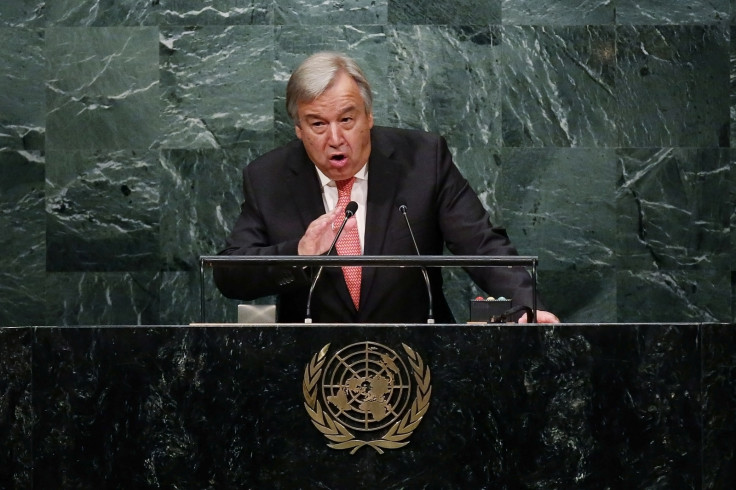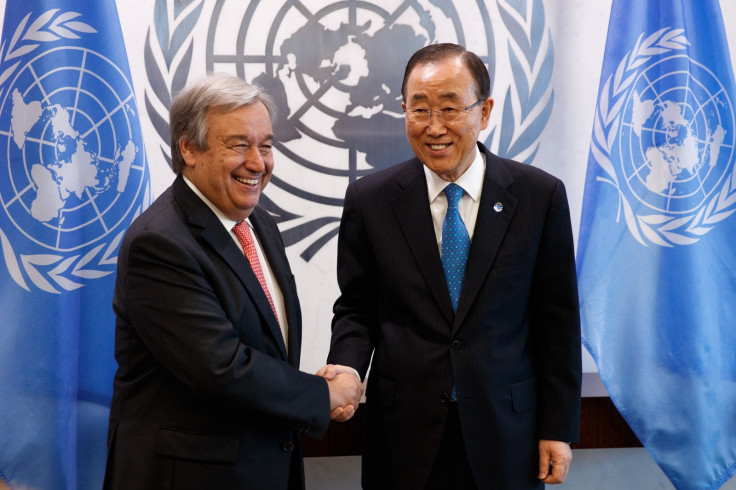Women discriminated against in UN top job race says lobby group amid calls for greater equality
UN observer Jean Krasno calls on new Secretary General Antonio Guterres to appoint women in top roles.

With Antonio Guterres appointed as the new United Nations Secretary-General, the group behind the campaign to elect a woman in the post has said the race for the top diplomat job was beset by discrimination but it still hopes for greater gender parity within the UN in future.
Long-time UN observer Jean Krasno, a founder of the Campaign to Elect a Woman UN Secretary-General, told IBTimes UK that Guterres should appoint women in high-level positions within the organisation to make good on the pledge by him, as well as by all the other male candidates, to be a champion of global women's issues.
"We were extremely disappointed. He (Guterres) is a fine person and I am sure he will do a good job. But I feel that there was definite discrimination (by the Security Council) against the women in many categories.
"We will support the new Secretary General but we would encourage him to begin doing this transition to name top women to some of the higher level posts because the Secretary General has the authority to do that."
Krasno said that he should name a woman as his deputy, and increase the post's responsibility such as turn it into a role that spearheads the UN's sustainable development goals.
"That may be the right one because it has such a global reach and it crosses all disciplines and that would be really significant. That would free up Guterres to deal with conflict resolution issues and crises around the world in terms of peace and security and that might make a nice partnership.
"We will help him to live up to his statement that he intends to create gender parity within the upper levels in the UN and we are here to help that," she said from New York.
The process to replace Ban Ki-moon was the most open yet, with candidates having to go on the hustings and present their campaigns through speeches, manifestos and public debates.
The vote however took place in the Security Council behind closed doors and the winner had to have the approval of the five permanent members.

The 1 for 7 billion campaign had fought for a more transparent process in the election of the Secretary General. Amid the calls for someone from eastern Europe to win, the group said the choice of Guterres, as the leading candidate, was a "triumph for merit over politics".
Executive director of the United Nations Association UK, Natalie Samarasinghe, said: "When we started the campaign three years ago, hardly anybody thought we would succeed.
"Could a bunch of NGOs break the stranglehold of the five permanent members of the Security Council over this decision?
"They couldn't have been more wrong. The millions of people worldwide who depend on the UN every day to feed, shelter and protect them know the UN matters."
The speculation before the result was announced after the final ballot earlier in October was that it was eastern Europe's "turn" for the job.
Director of Seton Hall University's Centre for United Nations and Global Governance Studies in New Jersey, Martin Edwards, said the choice of Guterres was a surprise given that he was not Moscow's preferred candidate of either Vuk Jeremić or Irina Bokova.
He said there could have been several reasons why Security Council permanent member Russia signed off on the former Portuguese prime minister.
"Either they knew full well their preferred candidates did not have a chance. They might have wanted a veto or delay this process but there was some sort of a deal brokered and a Russian might magically get named to head a UN department.
"Or, perhaps this is me being an optimist, because this process was so transparent and there were multiple votes, that actually made it harder for Moscow to veto Guterres. It would not have made them look all that good," he told IBTimes UK.
© Copyright IBTimes 2024. All rights reserved.






